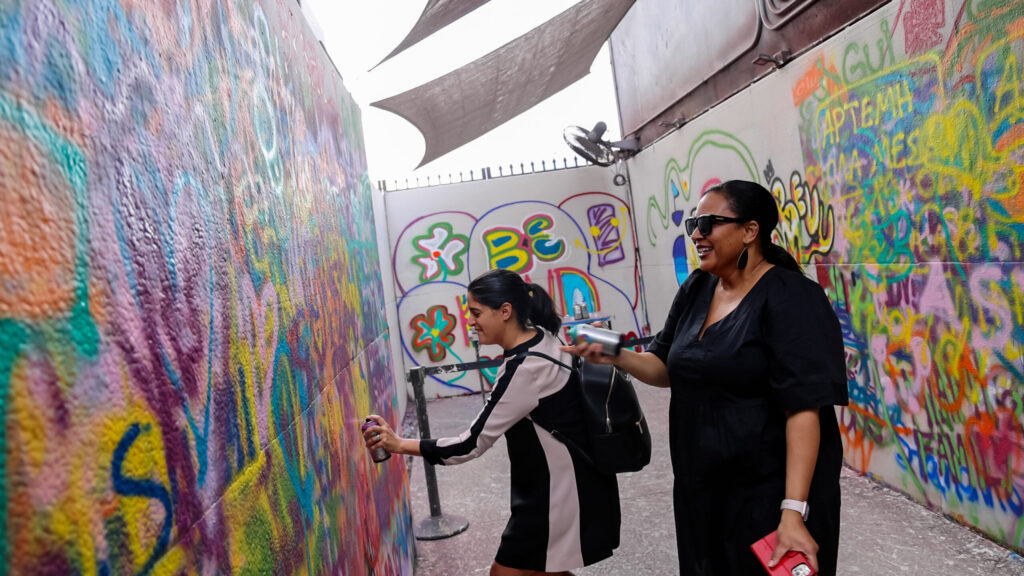A group of entrepreneurs and executives from around the world recently completed a fellowship working to bridge the gap between the humanities and technology.
The inaugural class of Virginia Tech’s Technology Leadership Institute, created and led by founder and tech executive Rishi Jaitley, aims to make art, history, religion, philosophy and other disciplines more accessible to more people in the tech industry. The two-semester program for mid-career professionals began in fall 2023 and wrapped up in April.
“I think a world where the humanities are more accessible and available is a more curious and more compassionate world,” said Jaitley, who lives near Virginia Tech’s main campus in Blacksburg.
Jaitley attributes his career success to integrating arts and technology, for example through storytelling, into his work across academia, investment, and technology policy. Jaitley is currently a distinguished research fellow and professor in the Humanities at Virginia Tech. He is also co-founder and former founding CEO of venture capital firm TimesBridge, a senior advisor to OpenAI, and a former leader of the public policy teams at Google and YouTube in South Asia.
In the program he leads, fellows will learn about concepts such as how faith and religion impact communities and the history of human leadership in different time periods and cultures.
The fellowship will be offered again next year, with applications due July 31. Eleven people took part in the program’s inaugural class, and Jaitley said he plans to keep class sizes similar for the next cohort.
Contact the Institute
The inaugural class includes a diverse range of people from large corporations, including three from Arlington-based aerospace company Boeing and one from cloud-computing provider Amazon Web Services, as well as people in leadership positions at their own companies. Advisers to the program include Jen Palka, founder of tech nonprofit Code for America, and Allen Lau, co-founder and former CEO of storytelling platform Wattpad.
The program is largely virtual, with each month focused on a specific theme. Fellows typically spend the first week of the month reading a variety of materials, then spend two weeks participating in virtual seminars, and the final week doing independent writing and journaling. There were also a few in-person events, including a meetup in Arlington and an intermediate trip to Miami. The Arlington area is set to develop its own tech industry after the city’s economic development agency designated it a tech hub in October. An announcement in early July said $19 million in funding would be available for various climate technology projects.
Combining technology and art for better leadership
The theme for the March fellowship is “Full Stack Human.” The concept is to combine humanities concepts with technology trends, Jaitley explained. The top section of this “full stack” is to get familiar with new themes such as generative artificial intelligence. But the foundation is humanities, Jaitley said.
This is an effort to see STEM and the arts as integrated, rather than at odds with one another.
“There’s a capacity and a drive there to continue to stay current, succeed and thrive, no matter what today’s technology environment is,” he said.
The concept is based on founder and venture capitalist Scott Hartley’s 2017 book “The Fuzzy and the Techie,” which inspired Jaitley to highlight the need for skills like self-reflection and imagination among technology leaders. Hartley, who serves as an adviser to the program, worked with Jaitley to teach the concept to the fellows.
The “full stack” paradigm stood out to fellow Amrita Tripathi, founder of two companies and former director of content partnerships at Twitter, who said both “fuzzy” and “technical” skills are important for leaders and organizations to thrive.
Tripathi, who also previously worked as a broadcast journalist, said she was looking to upskill herself as a leader in a meaningful way and found the fellowship online. She said she learned a lot during the program and it also reinforced the causes she already believes in. The focus on human-centered skills like critical thinking is essential for leaders who are focused on technology, especially artificial intelligence, she said.
“In our day-to-day work, we rarely take the time to dig deep into some of the big questions,” Tripathi said in an email. “For example, the biggest challenge right now for the tech industry and the myriad AI companies seems to be ethical: What are the ethics behind this new global AI race?”
She highly recommended the fellowship, calling it a “gift and a privilege.”
“Going back to school feels humbling,” Tripathi said. “You struggle to find meaning and connect the dots.”

